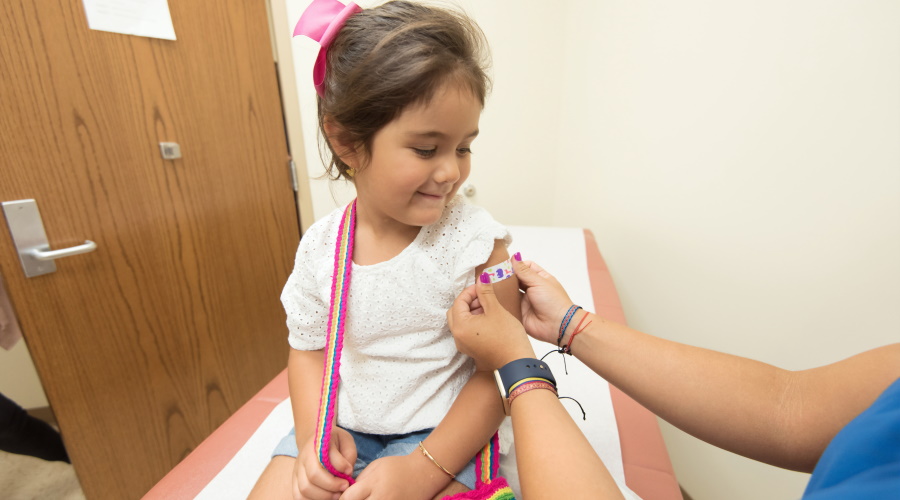COVID jabs now offered to all children aged 5 to 11 across UK

England and Northern Ireland have followed Wales and Scotland in offering healthy children aged between five and 11 a low-dose COVID-19 vaccine, making vaccination an option for a younger age group across the UK.
Health Secretary Sajid Javid says the rollout will be "non-urgent", and parents would be able to decide whether or not the vaccination would be right for their children. The move means around six million additional children will now be eligible for a shot from April.
The decision was taken on the advice of the Joint Committee on Vaccination and Immunisation (JCVI), which recommended that the rollout be expanded to protect the "very small" number of younger children who may be at risk of getting severe COVID-19 and needing hospitalisation.
It could also be useful in "increasing protection against potential future waves of COVID-19," said the advisory group, which had earlier taken a cautious stance on expanding the immunisation programme.
Previously it advised the vaccine only be given to vulnerable younger children with underlying health conditions, but data on the safety of vaccination in the five to 11 group from the US, Canada and Israel led to a change in its opinion.
The advice is that five to 11-year-olds are given two 10 mcg doses of Pfizer/BioNTech's Comirnaty vaccine – one third the strength of the adult version – with a gap of at least 12 weeks between the shots. The vaccine is already authorised for use in this age group.
Comirnaty has been linked to a risk of heart inflammation (myocarditis) in some recipients, but the JCVI's new guidance says fewer than two children would develop this out of every million vaccinated,
That should be weighed against the prevention of an estimated 98 hospitalisations due to COVID-19 if a subsequent wave of infections was severe, or 17 if it was mild, according to the latest guidance.
The move has divided opinion however, with some supporting the additional protection against future waves and others questioning the benefit of vaccinating young children who are at a much lower risk of becoming severely ill from COVID-19, given they may well already have been exposed to the virus.
"We know that vaccination on top of prior infection generates an increased breadth of neutralising antibodies, which will very likely help to protect from future variants, should they arise and circulate in the UK," said Dr Brian Ferguson, associate professor of immunology at the University of Cambridge.
"Giving parents the choice to vaccinate their child with this safe, effective vaccine is reasonable and many will be left wondering why it has not happened sooner," he added.
Another view was put forward by Dr James Doidge, senior statistician at the Intensive Care National Audit & Research Centre (ICNARC).
"It is reasonable to expect vaccination to boost the immunity of people with prior infection, and so to offer some additional protection," he acknowledged. "The question is whether that additional protection outweighs the additional risks?" he went on.
"The evidence provided by JCVI indicates a very poor job in weighing these risks in a population of children with low baseline risk and high levels of infection-acquired immunity."












